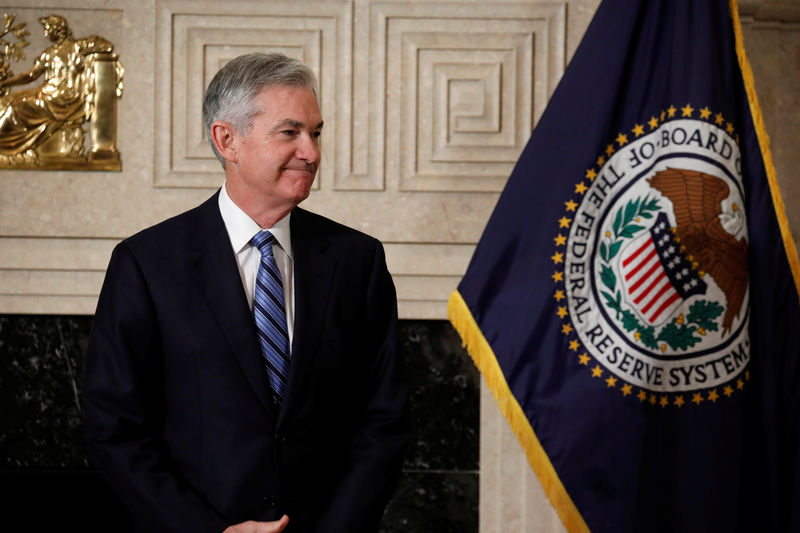By Yasin Ebrahim
Investing.com - Federal Reserve Chairman Jerome Powell said Thursday, the recent spike in U.S. rates was "notable" but stressed the central bank would continue the current pace of bond buying and low-level interest environment until substantial progress is made on its job creation and inflation goals.
The U.S. United States 10-Year Treasury jumped above 1.5%, while the United States 30-Year rose to a more than one-year high. The S&P 500 fell 1.58%, the Dow Jones Industrial Average fell 1.28%, or 399 points, and the Nasdaq Composite fell 2.3%.
Powell said the pace of the increase in rates last week "was something that was notable and caught my attention," but suggested the central bank is unlikely to step up its pace of bond buying. "For asset purchases, they'll continue at least at the current level, until we achieve substantial further progress toward our goals. That's actual progress, not forecast progress," he added.
"There's good reason to think we'll begin to make more progress. But even if it happens, it's likely to take some time to achieve substantial further progress, or interest rates to raise interest rates above zero."
The surge in rates has been attributed by some to a glut in the supply of bonds amid expansionary monetary policy and multi-trillion dollar fiscal packages.
"What happened with rates is pretty simple: supply and demand. We've printed so much money and issued so much debt that finding buyers for that debt is more challenging perhaps than maybe people thought," Sean O'Hara, president of Pacer ETFs, said in a recent interview with Investing.com.
If the pace of increasing rates continues, then the Fed will likely step up its bond buying purchases, while the next round of stimulus could also prompt buying from states, keeping a lid on rates.
"I think the Fed will act and, perhaps be a little more aggressive on their bond buying, O'Hara added. If the $1.9 trillion stimulus package passes, a lot of the money is "going to be transferred from the federal government to state governments, [who in turn] are likely to buy bonds," helping to stem the supply-demand imbalance.
Powell also downplayed the worries about a pick up in inflation, reiterating that any post-pandemic surge in prices is unlikely to be sustainable. "What happens in the next year or so is going to amount to prices moving up but not staying up, certainly not staying up to the point where they would move inflation expectations materially above 2%."
In the event that inflation or conditions "change materially, we'll be prepared to use our tools in whatever way is appropriate at that time to foster the achievement of our goals," the central bank chairman said.
